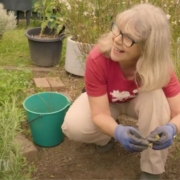How to Teach Your Children Empathy – and Why It Matters
Every few days the news readers tell us another story (or five) that reminds us how terribly badly some people in our society treat others. (I’ve stopped watching the news, but that’s another story entirely.)
Because news services thrive on sharing the most awful and depraved acts humans are capable of, we are often stunned – although sometimes I think we become a little desensitised because we hear so much of it.
As a simple selection of news items from today’s paper (I checked the news especially for this blog post):
A teenager pulled a trigger of a gun and killed a man
A woman was indecently assaulted walking home
A boy who killed one of his ‘friends’ with an axe is seeking a reduced sentence for his crime
A man threatened pharmacy staff with a hammer before stealing their cash
Politicians rorting, stealing, lying, and ‘doing dodgy deals’
And the horrific, disgusting list goes on and on, every single day.
It makes me sick.
This is what a world without empathy looks like. It’s a world where people don’t consider how things look from another person’s viewpoint; it’s a place where other’s feelings, perceptions, intentions, and motives don’t matter.
How to teach your children empathy – and why it matters
A world without empathy is one where people aren’t really people. Instead, they’re just objects, playthings, pawns to be manipulated for our own brutal (or otherwise) entertainment. We can do horrid things to them and chuckle about their pain, saying “you’ll know better next time”. Haha. Very funny.
How do we change this? What do we need to do to teach our children that other perspectives, other people, matter?
I have three suggestions:
1. Parents have got to take responsibility for teaching their children empathy.
The primary way to teach empathy to our kids is to show empathy to our kids. That means we stop dismissing their emotions. We stop disapproving of their feelings. Our kids don’t need to be punished for feeling sad, angry, frustrated, or afraid. They don’t need mum or dad telling them to ‘grow up’ or ‘get over it’.
To teach them empathy we make ourselves available to them, and when they are experiencing challenging emotions we turn towards those emotions and work our children through those emotions. They need our compassion – and then they can learn to be compassionate.
2. Parents have got to monitor and guide technology and media use in the home
Research leaves no doubt that kids who are exposed to violent media and games act more violently (and less empathically) than those who are not exposed to those games and media. A fourteen year-old boy who spends all weekend and most nights shooting and stabbing for entertainment, even if it is in the virtual world, is at far higher risk of acting violently in the real world.
These games, movies, and other media turn people into things – objects to be hit, beaten, stabbed, mutilated, or killed – for entertainment. And the research is clear: such media objectifies others, and desensitises our kids, effectively muting or even destroying empathy.
3. Invite perspective taking
In my book, What Your Child Needs From You: Creating a Connected Family, I share the story of a 6 year-old boy who took nuts to school with the intention to scare the life out of a classmate who had a peanut allergy. The boy was punished by the school and punished by his parents.
But I wonder what he really learnt?
When parents focus less on punishment and more on teaching through perspective taking, children learn more and they behave better. This boys’ parents might have done better to invite him to consider how his classmate would feel in such circumstances. They might help him see how scared that boy would feel when they next saw one another, or how he might feel about going to school in future. They could guide their offending son’s perspective to the fear and tears the boy with the allergies felt as he relived the experience with his parents after school that night.
There are few tools more powerful for creating empathy than the ability to take another’s perspective – to see the world through another’s eyes.
Where would you rather your children be?
To live in a world without empathy is to live in a world that is ego-centric, dog-eat-dog, focused on me. A world without empathy is a world where no one matters and my needs are king. A world without empathy would be a terribly unhappy place.
But… a world of empathy is one where people feel safe, secure, and connected. It’s a place where we can trust that people are concerned for our needs and interests. It’s a world where people see into our hearts, and see through our eyes. A world with empathy is a world where people understand and care. A world with empathy is a world I want for my children.
Article supplied with thanks to Happy Families.
About the Author: A sought after public speaker and author, and former radio broadcaster, Justin has a psychology degree from the University of Queensland and a PhD in psychology from the University of Wollongong.
Feature image: Photo by Anna Samoylova on Unsplash.


